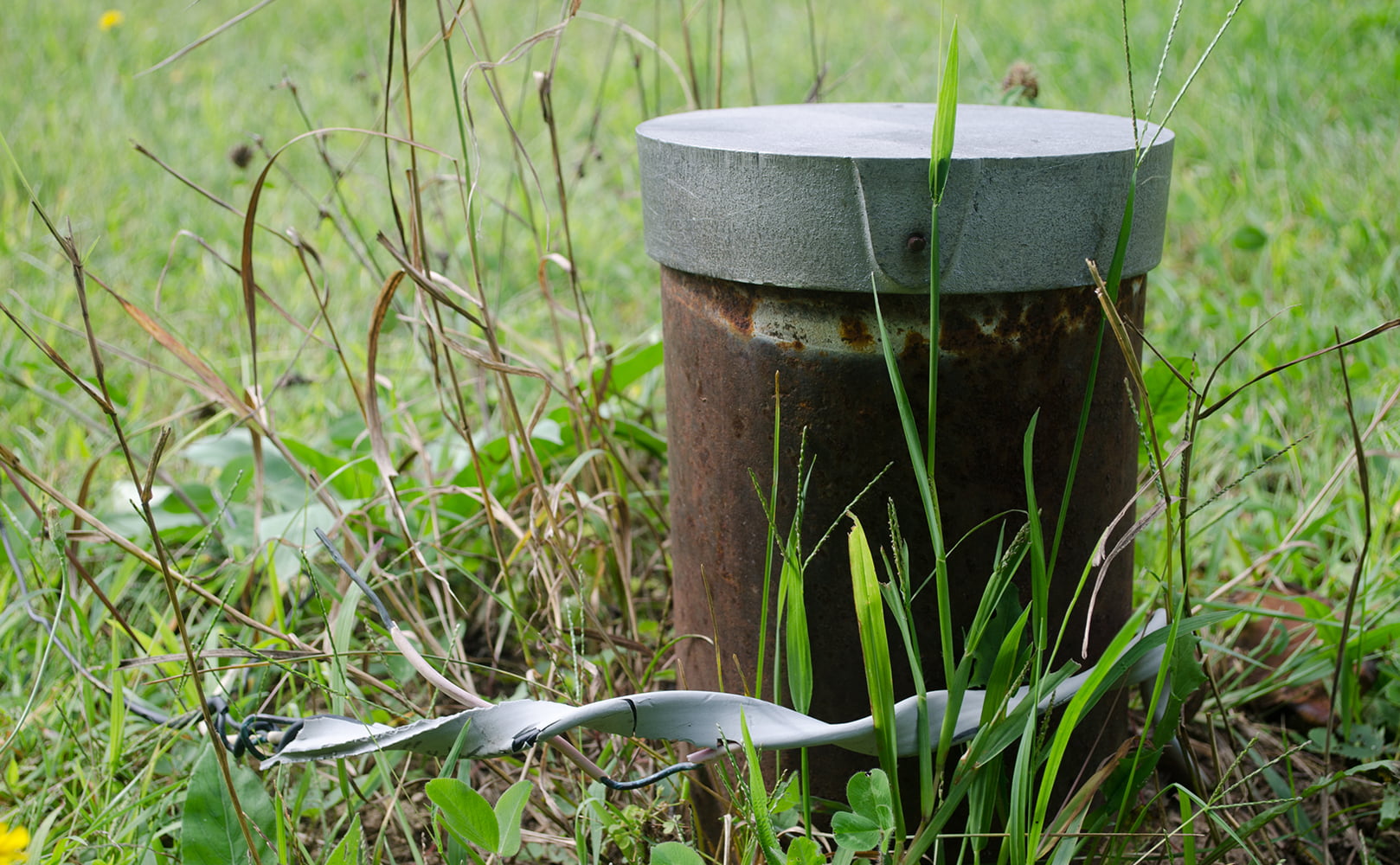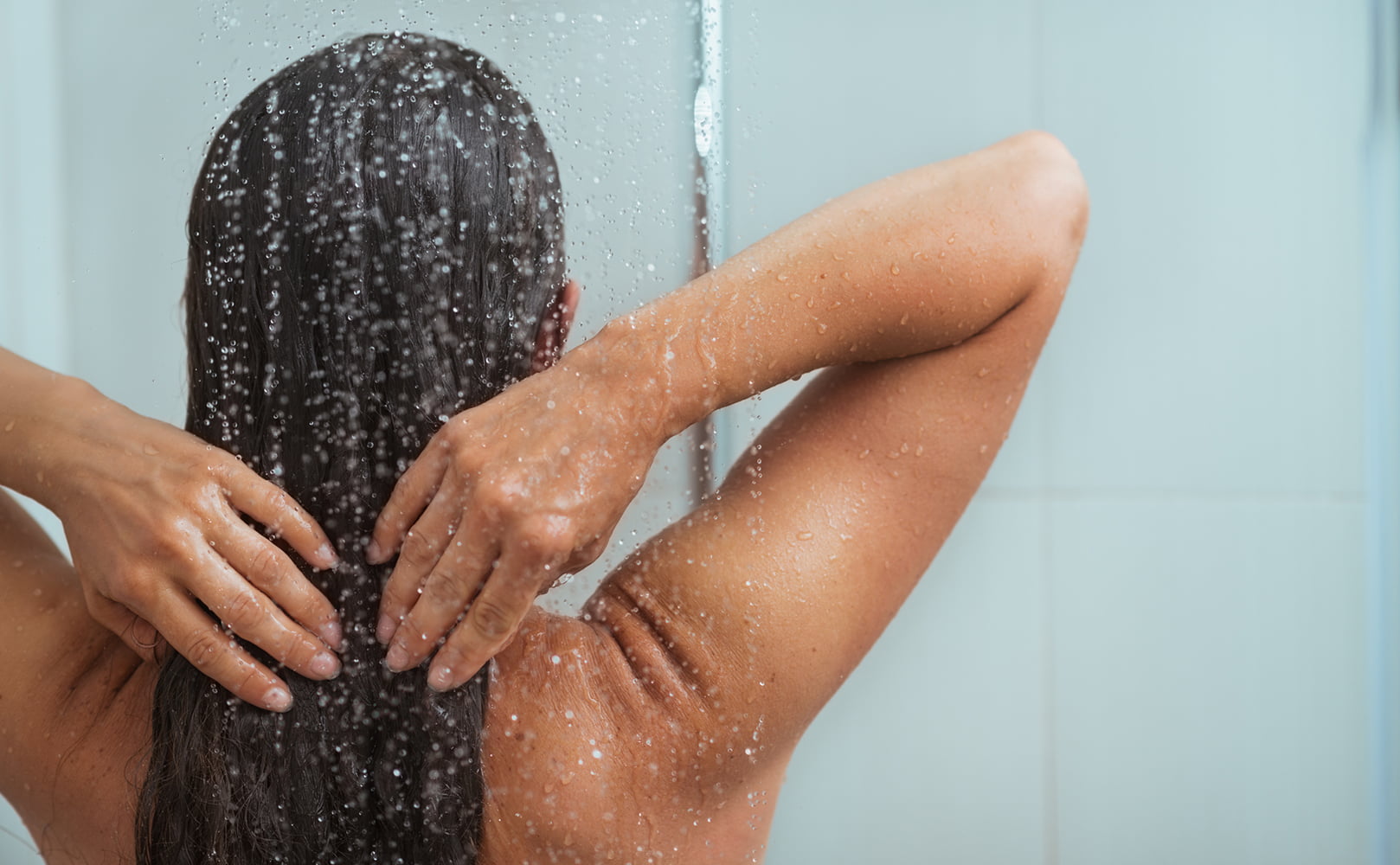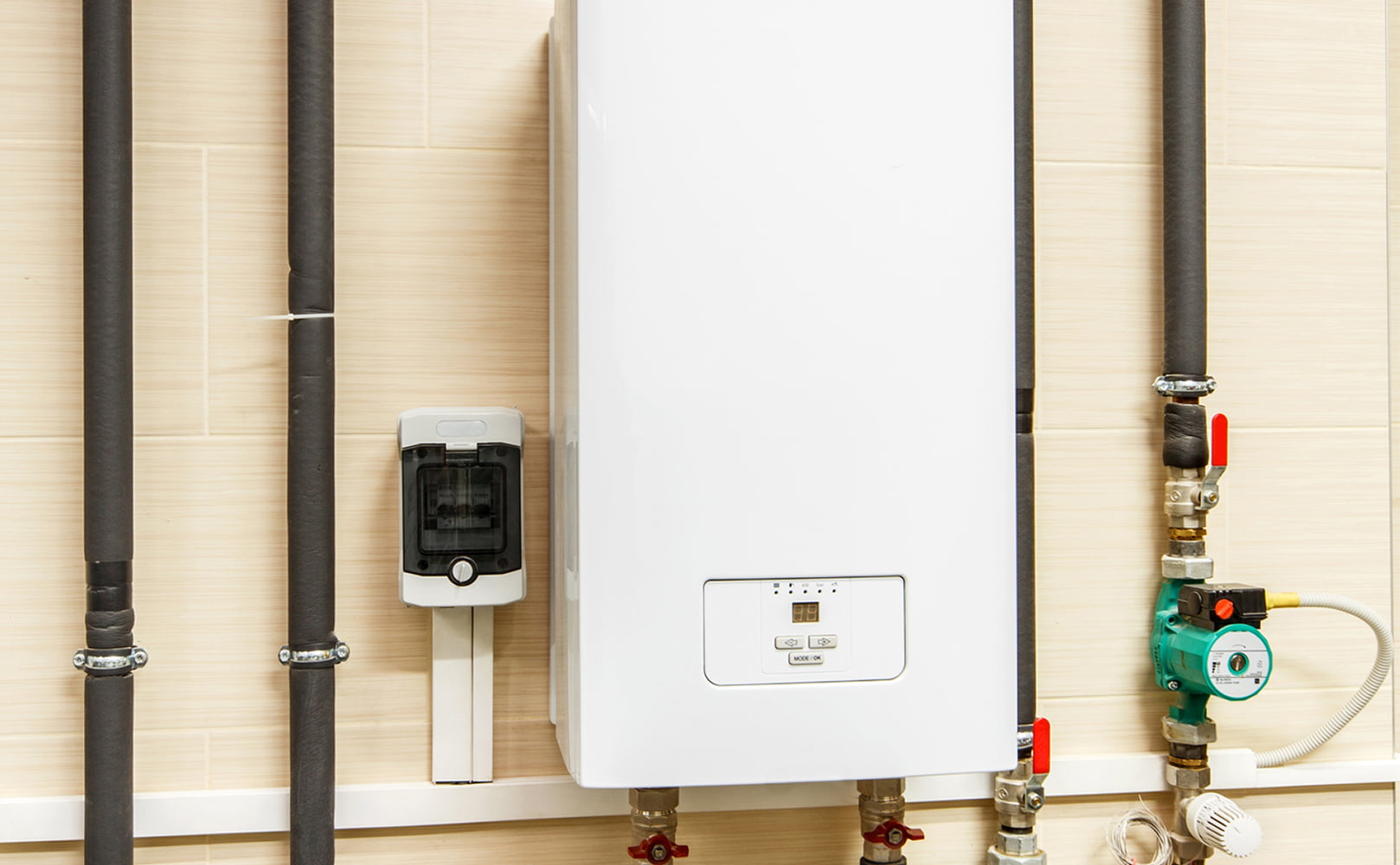Whole House Water Filter Benefits and Cons
Written by: Gene Fitzgerald // Last Updated: Aug 25, 2023
This page may contain affiliate links. If you buy a product or service through such a link we earn a commission at no extra cost to you. Learn more.
What sets a whole house water filter apart from POU filters? Is it peace of mind? The cost? Or the ease of usage?
Fortunately, when performing well, a whole house water filter is a workhorse that you probably don’t even notice. It’s easier to forget about it since most units are so easy to maintain.
Safe to say, if you are a fan of clean, pure, and healthy water all over your house, you might find a friend in whole house water filters.
Ready to find out why they are a great option? Let’s jump in.
Key Takeaways
Whole house water filter pros:
- Safer drinking water in entire house
- Better water taste and smell
- Healthier hair and skin
- Protects plumbing and home appliances
- Easier and faster cleaning routines
- Softer laundry
- Cheaper than bottled water (long-term)
- Low maintenance needs
Whole house water filter cons:
- Initial cost
- Space requirements
- You need to choose the right system
What Is a Whole House Water Filter?
A whole house water filter is a point of entry filtration system that purifies every drop of water in your home. Installed at the point where the main water line enters your house, these filters will save your family, appliances, and plumbing from the perils of contaminated water.
Some people incorrectly assume that their tap water gets perfectly purified at the source. Then why would they spend extra time and money on a filtration device? The truth is, except for disinfection, water treatment at scale is not that easy. So as consumers we have no idea to what extent our water has been cured!
Besides, private well water hasn’t seen any pre-treatment before it enters your home!
Want to learn more? Read here: How Does a Whole House Water Filter Work?
Advantages of a Whole House Water Filter
By now we have established that people in the US may need to filter their water before it’s suitable for residential use.
Water filters provide you with pure water around the house, but a whole house filter system takes the cake with many additional perks.
Here are ten simple reasons why you should make the investment.
1. Safer Drinking Water Everywhere in the House
Safe and healthy water is an essential requirement for the entire family. No doubt, most water utilities do a standard job at regulating your water supply, but you may want to install a whole house water filter to ensure extra safety.
A filter that supplies water to every tap in the house ensures you are shielded from contaminants while drinking, showering, or brushing teeth.
Not to forget, various contaminants like chlorine can be inhaled through the lungs and absorbed into the skin. So, the next time you take a hot shower or run the dishwasher, remember that a small amount of contaminants is added to your environment.
Therefore all faucets and appliances must use treated water. The improved water quality will make your indoor air better too. Why not kill two birds with one stone?
Depending on the type of whole house water filter you use, here is a list of contaminants your system can remove:
- Chlorine
- Chloramine
- Lead
- Iron
- Manganese
- Sediment, sand, dirt
- Arsenic
- Herbicides and pesticides
- Bacteria
- Viruses
- etc.
2. Healthier Hair and Skin
Pure water is the key to healthy skin and hair along with overall well-being. If you have an extensive skin and hair-care routine, but your water is full of chemicals, scale and dirt, you are washing your products down the drain.
Your hair, specifically, is made up of 5% water and 95% protein. Chlorinated water and hard water wreaks havoc on your hair, breaking down the hair shaft by stripping away protein. Regardless of how much you pamper your hair with masks and oil, unsafe water will make it dry, brittle, and prone to breakage.
In the same fashion, hard water can cause skin dryness, breakouts, and irritation. This is because excessive minerals in hard water disrupt your skin’s natural pH balance.
Moreover, chemical-laden water can aggravate certain skin conditions such as psoriasis and eczema.
3. Better Water Taste
No one likes water that is “turbid” or tastes metallic. A whole house water filter will remove organic contaminants, chlorine, iron, and other impurities that alter the taste of water.
Very alkaline water is a major cause of weird taste. But, some filters also balance out the pH level of water making it taste better.
4. Better Smell
Water that is free from chlorine, hydrogen sulfide, heavy metals, and germs will inevitably smell and look better.
Therefore, if your water smells like a rotten egg, a whole house water filter can quickly fix the problem. You can wave goodbye to the horrible smells coming from the sinks in your bathroom and kitchen.
5. No More Bottled Water Waste
Plastic waste is a bane for humankind, the planet, and all its inhabitants. If you choose to use bottled water for your house, not only are you adding a significant sum to your monthly grocery, but polluting the waterways too.
Did you know it will take approximately 450 years for plastic bottles to disintegrate? Therefore, every conscious effort is necessary to eliminate plastic waste. Switching to whole house water filters allow you the liberty to ditch bottles once and for all and save our planet.
6. Long-Term Cost Savings
Every household appliance comes with a price tag, but what if we told you a whole house water filter literally pays for itself. No kidding! Here’s how:
- Improved gastric health of family means fewer trips to the doctor
- Save hundreds of dollars every year since you no longer have to buy bottled water
- Plumbing is saved from buildup from heavy metals and minerals, leading to fewer repair costs
- Protects your appliances from sediment elongating their life
- Since it’s considered a luxury, it may increase your property’s value, impress buyers, and get you a better selling price
7. Fewer Maintenance Needs
Whole house filter systems are efficient and most of them require little to no maintenance. Cartridge-style filters require a periodic change of the filter media. In contrast, tank-based systems can last you up to five years without you needing to lift a finger.
Moreover, these filters eliminate the need for any other filtration device around the house. Therefore, you only have to worry about maintaining one unit.
8. Reduced Repair Cost
With a whole house water filter, you can expect an overall decline in repair costs. It protects your water heater, dishwasher, washing machine, and fridge from clogging.
It also prevents the buildup on fixtures and fittings. Moreover, you will see a reduction in unsightly stains on sinks, tubs, and shower areas by reducing iron and other heavy metals.
9. Extended Life of Water Using Appliances and Plumbing
Your dishwasher, garbage disposal, ice maker, washing machine, and water heater will last you longer when you install a whole house water filtration system.
This is because these water-based appliances rust and clog due to polluted water. So not only do you save money on maintenance, but you can also get more use out of them.
10. Save on Cleaning Agents, No More Hard Water Spotting, Soft Clothes
Hard water makes it difficult for soap to dissolve and create lather. As a result, you use more detergents and cleaning supplies to achieve the desired goal. Not only does it increase your grocery bills, it means you have to use more energy and scrub harder to remove stains. Unfortunately, it’s a vicious cycle that requires more money, more energy; while the spots reappear again in a few days. (These problems can be solved using a water softener.)
Moreover, water that is high in iron will leave brown stains on your clothes and leave a faint odor. Over time, your clothes will become stiff and smell musty even after drying.
Whole House Water Filtration System Cons
We do take whole house water filtration very seriously, but we also know that it might not be the best option for each household. Here are some cons associated with these systems:
1. Initial Costs
Most whole house water filtration systems can cost around $300 to $2000+. Add to that the installation expenses, and the initial costs can escalate pretty fast. For people who are just setting up a new home, this added burden might seem like a luxury.
2. Space
If you are living in a rental property or an apartment, you know how space can be a major issue when deciding to buy any appliance. To be honest, these units are not quite compact. So, if you don’t have a suitable place to set it up, you can chalk them off the list.
3. Drop in Water Pressure
Water filtration takes time and sometimes this could mean you will see a decline in water pressure around the house. Especially as filters start to clog, water pressure goes slightly down.
However, this situation can be avoided considerably by properly sizing a whole house filter system according to your daily water requirement.
4. Unnecessary Filtration
Unfortunately, some water filtration systems reduce essential nutrients too. For instance, calcium is an essential mineral strengthening your bones and teeth. If your whole house water filter removes all impurities, it will remove calcium too.
Reverse osmosis systems in particular are notorious for removing healthy minerals. Unless you use a remineralization filter, you will find your water is seriously lacking or in other words “empty”.
Whole House Water Filter Types
Here are the most common types of whole house water filtration systems. All of these systems use different technologies to remove contaminants.
Sediment Filters
Sediment filters are basic whole house filters that remove suspended dirt, sand, silt, scale, and organic matter. Most residential sediment filters are cartridge-style units that block “turbid” or muddy water.
Carbon-Based Filters
Carbon-based filters are the most common and economic filters for residential and commercial water purification. They remove chlorine, organic substances, chemicals, and VOCs.
Reverse Osmosis
Reverse osmosis systems remove almost all contaminants from your water including chlorine, heavy metals, pesticides/herbicides, other chemicals, and microorganisms. The result: Pure water.
UV Filtration
UV filters use ultraviolet light to eliminate bacteria, fungi, parasites, and algae from your water. But they do not remove anything.
(Water Softeners)
Water softeners are not exactly filters but “purifiers”. They remove calcium and magnesium from your water, making it soft and reducing buildup around the house.
If you have any questions about whole house water filter benefits and cons please don’t hesitate to leave a comment below!
Information provided on BOS is for educational purposes only. The products and services we review may not be right for your individual circumstances.
We adhere to strict editorial guidelines. Rest assured, the opinions expressed have not been provided, reviewed, or otherwise endorsed by our partners – they are unbiased, independent, and the author’s alone. Our licensed experts fact-check all content for accuracy. It is accurate as of the date posted and to the best of our knowledge.




